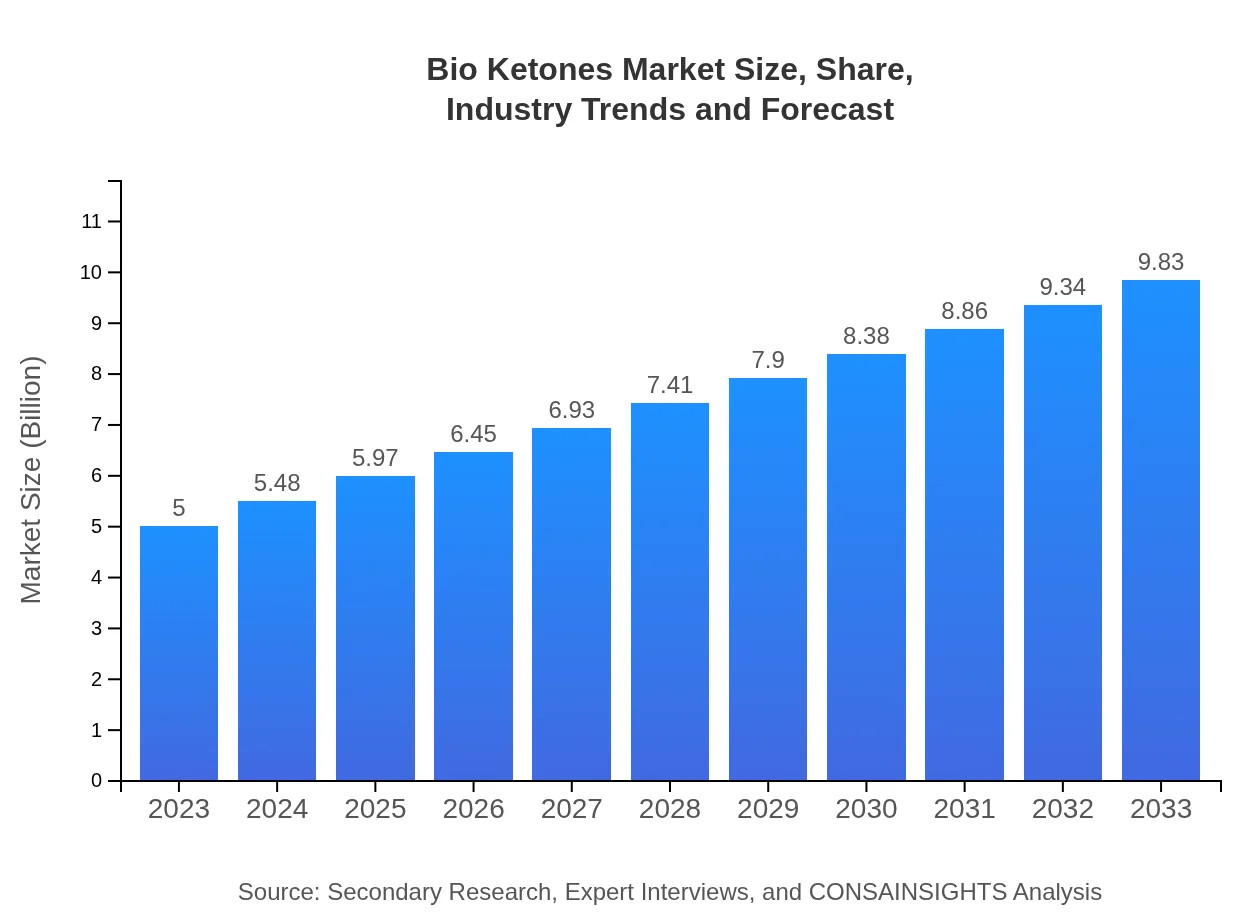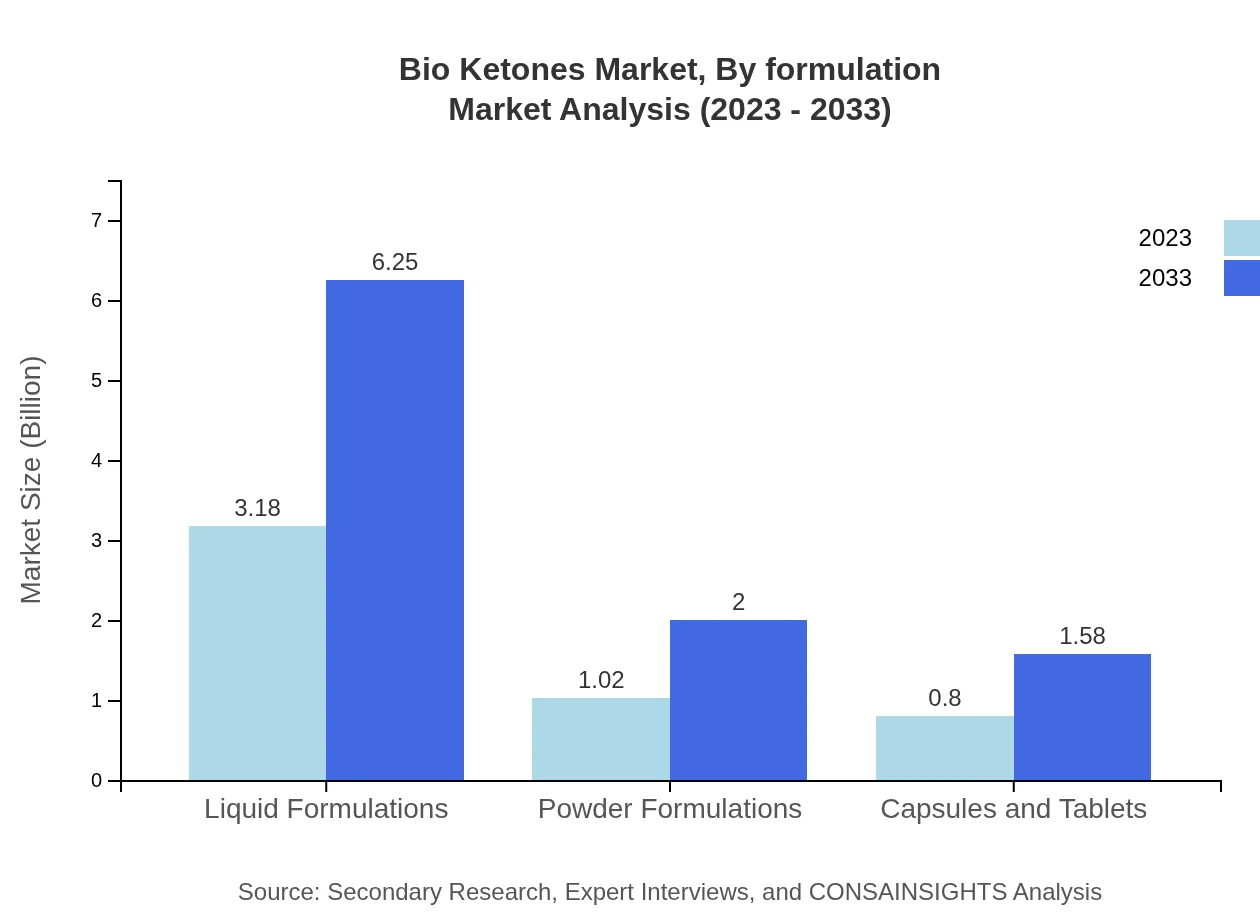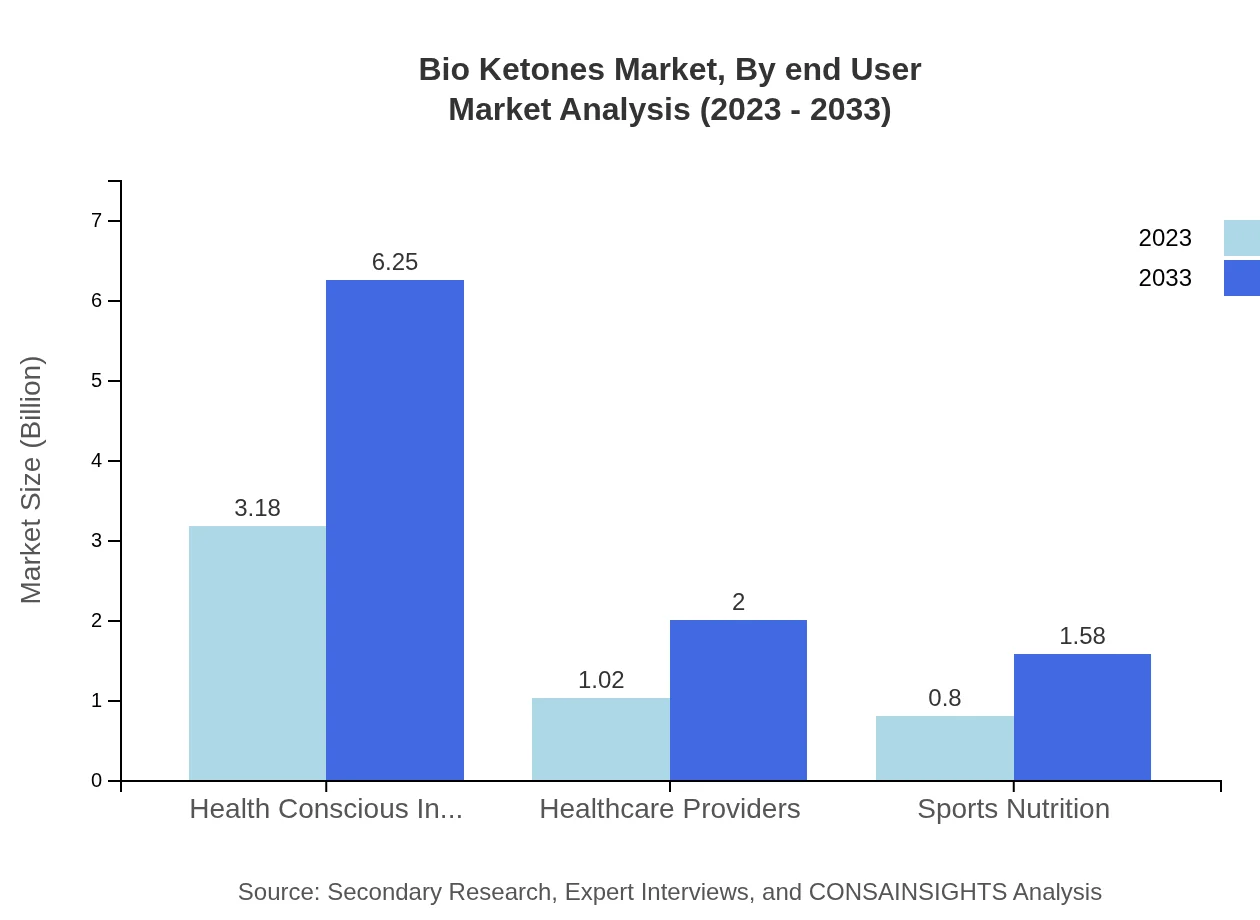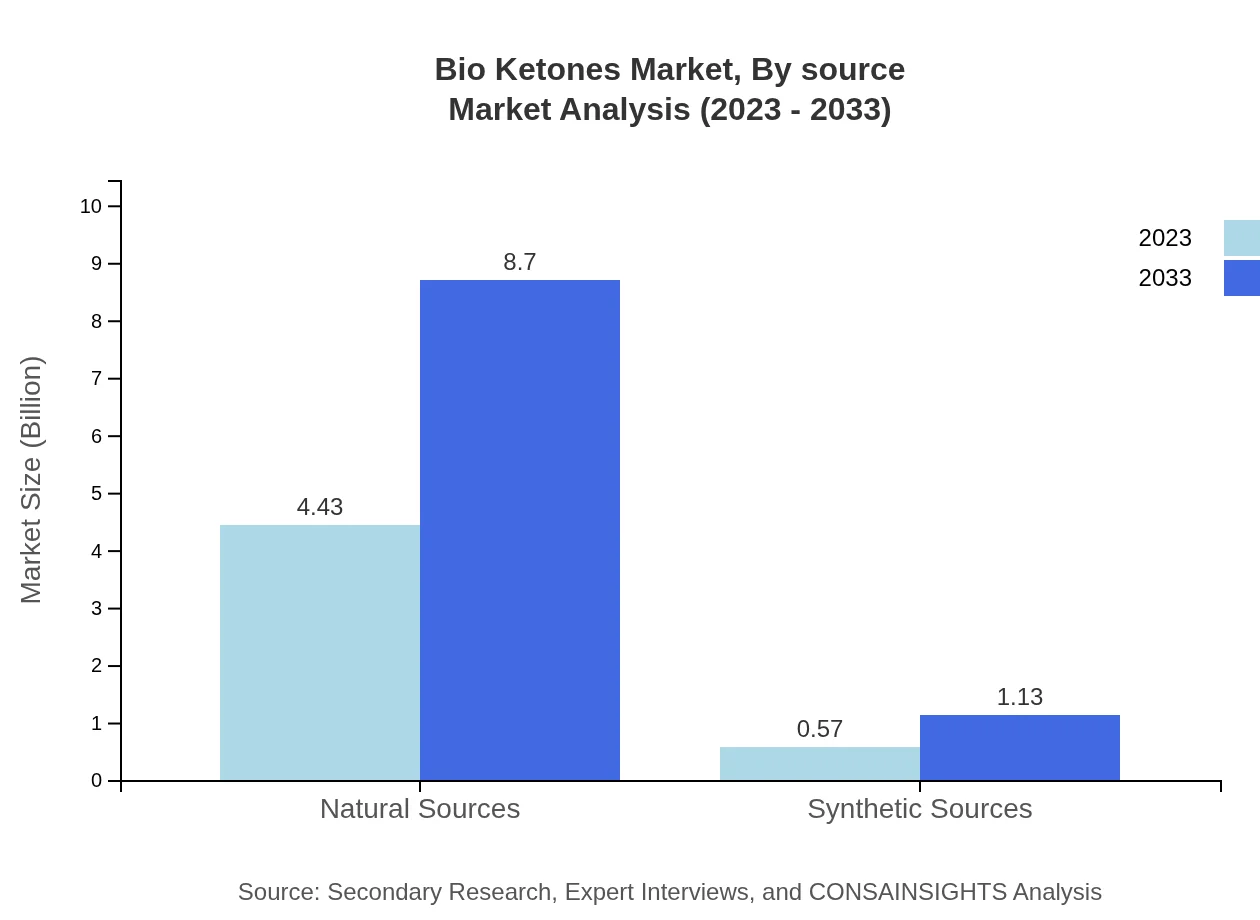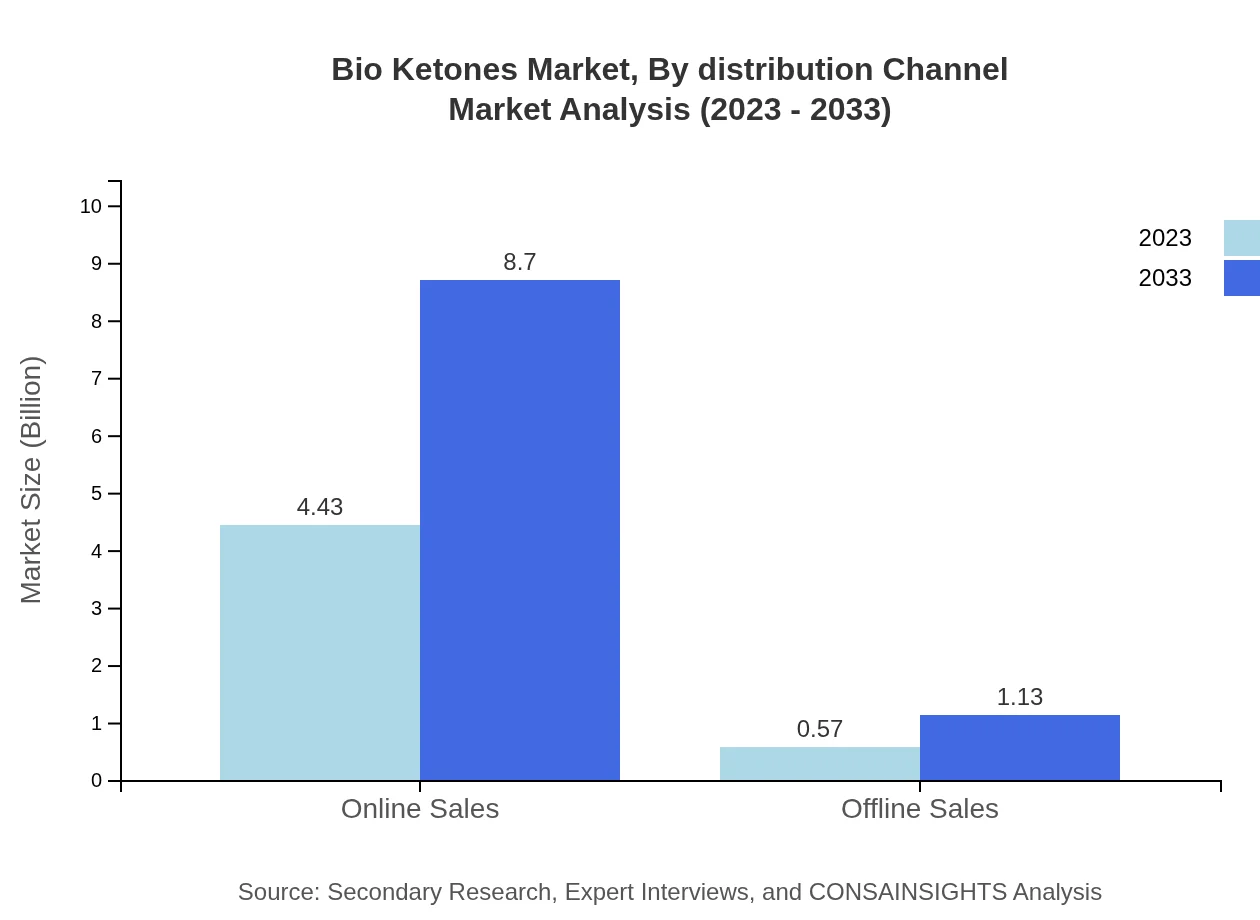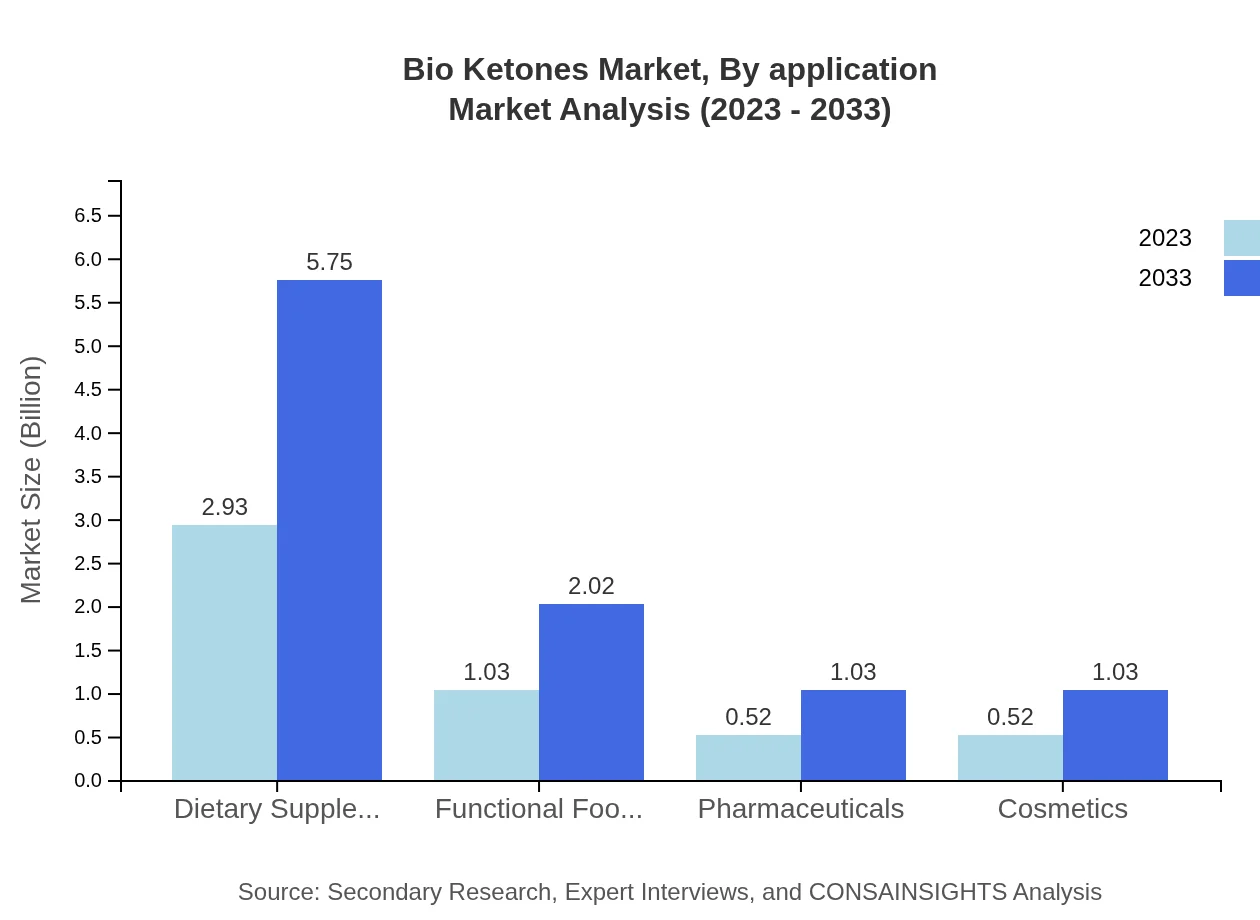Bio Ketones Market Report
Published Date: 02 February 2026 | Report Code: bio-ketones
Bio Ketones Market Size, Share, Industry Trends and Forecast to 2033
This report provides a detailed analysis of the Bio Ketones market from 2023 to 2033, encompassing market size, growth rate, segmentation, and regional insights. Additionally, it highlights industry trends, key players, and future forecasts based on in-depth research and data analysis.
| Metric | Value |
|---|---|
| Study Period | 2023 - 2033 |
| 2023 Market Size | $5.00 Billion |
| CAGR (2023-2033) | 6.8% |
| 2033 Market Size | $9.83 Billion |
| Top Companies | Keto Science, Perfect Keto, KetoLogic, Zazubean |
| Last Modified Date | 02 February 2026 |
Bio Ketones Market Overview
Customize Bio Ketones Market Report market research report
- ✔ Get in-depth analysis of Bio Ketones market size, growth, and forecasts.
- ✔ Understand Bio Ketones's regional dynamics and industry-specific trends.
- ✔ Identify potential applications, end-user demand, and growth segments in Bio Ketones
What is the Market Size & CAGR of Bio Ketones market in 2023 and 2033?
Bio Ketones Industry Analysis
Bio Ketones Market Segmentation and Scope
Tell us your focus area and get a customized research report.
Bio Ketones Market Analysis Report by Region
Europe Bio Ketones Market Report:
Europe's Bio Ketones market is forecasted to grow from $1.25 billion in 2023 to $2.45 billion by 2033, supported by increasing consumer demand for dietary supplements and functional foods. Countries like Germany and the United Kingdom leverage strong retail networks for product distribution.Asia Pacific Bio Ketones Market Report:
The Asia Pacific region is expected to witness substantial growth due to increasing health awareness and a growing trend for functional foods. The market size in 2023 is estimated at $1.03 billion, projected to rise to $2.03 billion by 2033. In countries like China and India, the rising disposable income and dietary changes significantly contribute to this growth.North America Bio Ketones Market Report:
North America holds a substantial share of the Bio Ketones market, valued at $1.81 billion in 2023 and expected to reach $3.56 billion by 2033. The region's growth is driven by a high prevalence of obesity, fitness enthusiasts, and a strong inclination towards ketogenic diets.South America Bio Ketones Market Report:
In South America, the Bio Ketones market is still emerging, with a 2023 market size estimated at $0.21 billion, projected to double to $0.42 billion by 2033. The increasing adoption of health and wellness products among consumers creates opportunities for manufacturers in this region.Middle East & Africa Bio Ketones Market Report:
The Middle East and Africa market is projected to exhibit growth from $0.69 billion in 2023 to $1.36 billion by 2033. The rising awareness regarding fitness and health among consumers drives this growth, along with increased disposable income in the region.Tell us your focus area and get a customized research report.
Bio Ketones Market Analysis By Formulation
The formulation segment showcases a diverse range of products in the Bio Ketones market. In 2023, liquid formulations dominate with a market size of $3.18 billion (63.59% share), followed by powder formulations at $1.02 billion (20.34% share) and capsules/tablets at $0.80 billion (16.07% share). By 2033, the liquid segment is expected to maintain its leadership position, growing to $6.25 billion, while powder formulations and capsules/tablets will also witness significant growth.
Bio Ketones Market Analysis By End User
The end-user segment highlights the varying consumer groups using Bio Ketones. Health-conscious individuals comprise the largest segment, with a market size of $3.18 billion and a share of 63.59% in 2023. This segment is projected to grow significantly to $6.25 billion by 2033. The healthcare provider segment, characterized by professional recommendations, is also significant, expected to grow from $1.02 billion to $2.00 billion during the period.
Bio Ketones Market Analysis By Source
The market segmentation by source reveals that natural sources dominate with a market size of $4.43 billion in 2023 (88.51% share), and this is expected to rise to $8.70 billion by 2033. In contrast, synthetic sources are anticipated to grow from $0.57 billion to $1.13 billion, making up a smaller market share at 11.49%.
Bio Ketones Market Analysis By Distribution Channel
In the distribution channel segmentation, online sales are projected to remain the dominant method, with a market size of $4.43 billion in 2023 (88.51% share), increasing to $8.70 billion by 2033. Offline sales account for a smaller share, projected to grow from $0.57 billion to $1.13 billion.
Bio Ketones Market Analysis By Application
Applications of Bio Ketones can be found in dietary supplements, functional foods, pharmaceuticals, cosmetics, and more. The dietary supplements segment is leading with a market size of $2.93 billion (58.55% share) in 2023, and it is expected to grow steadily to $5.75 billion by 2033, followed by functional foods and pharmaceuticals.
Bio Ketones Market Trends and Future Forecast
Tell us your focus area and get a customized research report.
Global Market Leaders and Top Companies in Bio Ketones Industry
Keto Science:
Keto Science specializes in creating premium-quality ketone supplements that support weight management and enhanced exercise performance through advanced research and development.Perfect Keto:
Perfect Keto offers a range of ketogenic-friendly products focusing on health and wellness, including supplements that boost ketone levels and support healthy weight loss.KetoLogic:
KetoLogic provides nutritional products designed for the ketogenic diet, including meal replacements and snacks, catering to a growing customer base.Zazubean:
Zazubean focuses on creating high-quality, organic, and natural ketone-based products, appealing to health-conscious consumers seeking alternatives to mainstream supplements.We're grateful to work with incredible clients.









FAQs
What is the market size of bio Ketones?
The global bio-ketones market is projected to reach approximately $5 billion by 2033, growing at a CAGR of 6.8%. This indicates significant growth potential and demand for bio-ketones in various applications over the next decade.
What are the key market players or companies in the bio Ketones industry?
Key players in the bio-ketones market include major companies specializing in nutritional products, dietary supplements, and healthcare, contributing to innovation and market development, though specific names are not disclosed in the data.
What are the primary factors driving the growth in the bio Ketones industry?
Growth in the bio-ketones market is driven by rising health consciousness, increasing demand for dietary supplements, and a growing interest in ketone-based nutrition among athletes and health enthusiasts.
Which region is the fastest Growing in the bio Ketones?
The Asia-Pacific region is the fastest-growing market for bio-ketones, projected to grow from $1.03 billion in 2023 to $2.03 billion by 2033, indicating a CAGR that reflects expanding consumer interest in this sector.
Does ConsaInsights provide customized market report data for the bio Ketones industry?
Yes, ConsaInsights offers customized market report data tailored to specific needs within the bio-ketones industry, helping our clients obtain detailed insights and projections.
What deliverables can I expect from this bio Ketones market research project?
Deliverables from the bio-ketones market research project typically include comprehensive market analysis, trend forecasts, competitive landscape details, and segmentation insights, tailored to client specifications.
What are the market trends of bio Ketones?
Current trends in the bio-ketones market include a shift toward natural sources, increased adoption of liquid formulations, and expansion in online sales channels, reflecting changing consumer preferences and purchasing behaviors.

